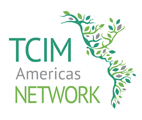Cultural and ethnic diversity of the region
The Americas Region is characterized by its cultural, ethnic, and linguistic diversity, as well as by the multiplicity of existing medical systems and therapeutic practices. Indigenous(1), Afro-descendant(2), Roma(3) and other ethnic populations(4) (who receive different denominations and conceptualizations depending on the historical, social and political context of the countries) live and coexist in it, which implies recognizing cultural realities and different health needs, both among the countries of the Region, as well as within them.
In recent decades, important commitments and political initiatives have been developed at the global, regional and local levels for the recognition and respect of Human Rights, Collective Rights and Own Law, both of these populations and their members. Likewise, for the recognition, appreciation and protection of traditional medicines that have been developed for thousands of years by these groups.
For their part, these populations have advanced within the countries processes of claiming their collective rights, their traditional medicines and health as a fundamental human right, as well as the recognition and appreciation of their cultures and their knowledge and traditional knowledge.
This has allowed greater participation and visibility of these populations in decision-making on situations that affect them and affect the exercise of their rights (in this case of health) and their quality of life; historically pending tasks on the part of the States.
This wide diversity is still underestimated wealth, which represents challenges and opportunities for both governments and the population in general, in search of understanding their past, being in the present and projecting a future and achieving equity in health and access, without discrimination, to quality, timely, comprehensive and socio culturally appropriate health services
Policy on Ethnicity and Health (29th Pan American Sanitary Conference)
List of indigenous peoples of the Americas
[1] Indigenous peoples, native peoples, nations, ethnic groups, indigenous communities, natives
[2] Afros (+ name country, example: Afro-Colombians, Afro-Peruvians, Afro-Bolivians), black communities, raizales, blacks, mulattoes, morenos, zambos, pretos, maroons
[3] Rom people, gypsies, Cingaros, Ciganos
[4] Cultures, ethnic communities, ethnic groups




